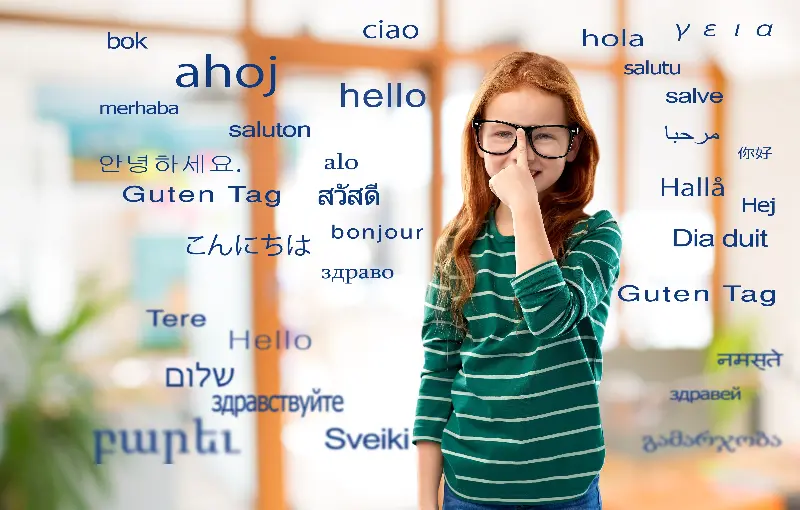The question of whether raising a child to speak more than one language actually boosts their intelligence has intrigued parents, educators, and scientists alike. As our world grows increasingly interconnected, it’s not just cultural heritage or job-market advantages at stake—many parents are now asking: does multilingualism make my child smarter? The answers, thanks to a wide range of recent studies, are both fascinating and more nuanced than many expect.

Bilingual Brains: More Than Just Vocabulary
For decades, a common myth suggested that learning two or more languages could confuse young children, perhaps even slowing their mental or academic growth. Today, science has flipped that idea on its head. Research from brain imaging studies—and simple observation over the years—shows that children who grow up speaking more than one language actually develop certain brain regions more robustly.
What’s going on inside their heads? In a nutshell, multilingual kids regularly practice switching between languages, filtering out words and rules from one tongue while using another. This “mental gymnastics” strengthens the brain’s executive function—the set of skills that control attention, multitasking, and problem-solving. For example, one fascinating study published in the journal Child Development found that bilingual children outperformed their monolingual peers in tasks measuring “cognitive flexibility”—the brain’s ability to shift thinking and juggle several ideas at once.
Academic Performance And Learning Benefits
Of course, intelligence comes in many flavors, so does being multilingual translate into better grades or faster learning? Several meta-analyses provide a cautious yes, particularly in early years. Bilingual and multilingual children have been shown to excel in reading skills, pattern recognition, and even math, compared to monolingual children. These advantages aren't uniform or absolute, but they are notable enough to encourage more educators to integrate language learning earlier and more robustly in schools.
It isn’t just about schoolwork, though. Psychologists have found that multilingual children are better at “metalinguistic awareness”—an understanding of how language itself works. This helps them learn new languages more efficiently, and may even offer a head start in understanding concepts like grammar, spelling, and structure in their native tongues. For parents wondering whether a bit of extra effort at home or school is worth it, the answer, increasingly, looks like a yes.

Surprising Social And Emotional Perks
While brainpower often takes center stage in these discussions, it’s easy to overlook the quieter—and equally important—benefits of growing up with multiple languages. One area that has caught researchers by surprise is empathy. Studies indicate that multilingual children tend to be better at understanding other people’s perspectives and emotions.
Why does this happen? When kids toggle between different languages, they’re not just decoding new sounds and meanings. They’re also tuning into the cultural rules and customs baked into each language—who to address formally, for instance, or which emotions are typically shared out loud. This exposure seems to make multilingual children more skilled social navigators, picking up on body language and subtle cues faster than their monolingual friends.
There's even evidence that these skills persist well beyond childhood. A study from the University of Chicago found that bilingual adults showed a greater ability to view situations from others’ viewpoints, an important trait for later success in relationships and the workplace.
Myths, Realities, And Raising A Multilingual Child
It’s tempting to picture the bilingual child as a mini-Einstein, breezing through life with perfect grades and endless charm. The reality is more complex. While the benefits of multilingual upbringing are clear, they don’t make a child immune to other challenges, nor do they automatically guarantee higher IQs. Cultural and socioeconomic factors, the quality of language exposure, and even a child’s personality all play a role.
Another common worry parents share is the fear of speech delays. While multilingual children might temporarily mix languages or take a few weeks longer to utter their first words, studies repeatedly show that by the age of five, bilinguals catch up to their monolingual peers in both vocabulary and grammar—sometimes with an added edge in creative thinking or communication.
It’s also worth remembering that not all languages are learned equally. Consistency and context (using each language regularly in meaningful situations) have a much greater impact than sheer repetition. Children thrive when both languages are valued at home, in school, and in their broader community.
The Takeaway For Curious Parents
So, are multilingual children “smarter”? If by “smart” we mean sharper attention, more flexible thinking, and stronger social skills, science is giving a clear, if measured, nod. Multilingualism offers real cognitive and emotional perks, supporting stronger development in early childhood and, often, well beyond.
But the most important takeaway might have little to do with test scores or brain scans. Multilingual children tend to grow up with a wider view of the world, connecting with more people, cultures, and ideas than they might otherwise. For many parents, that enduring curiosity—the drive to listen, learn, and empathize across languages—may be the smartest gift of all.
